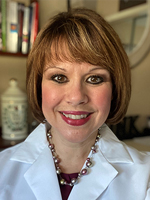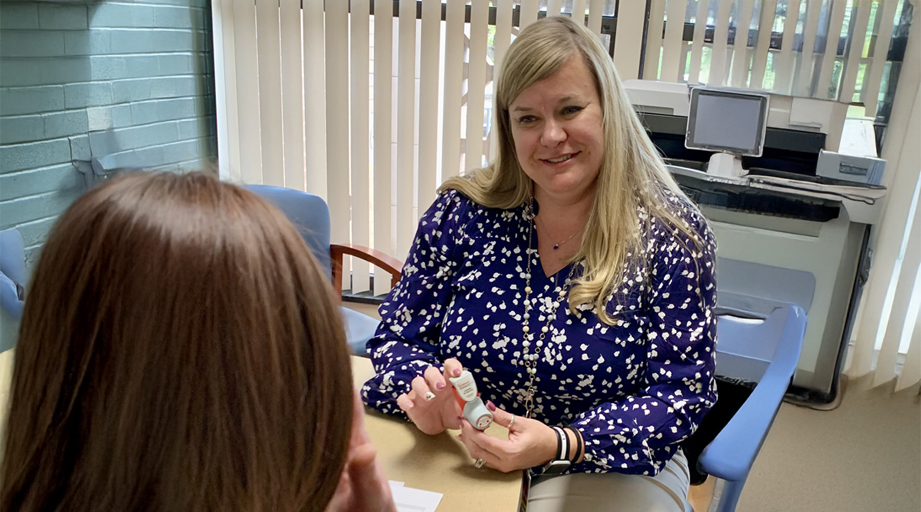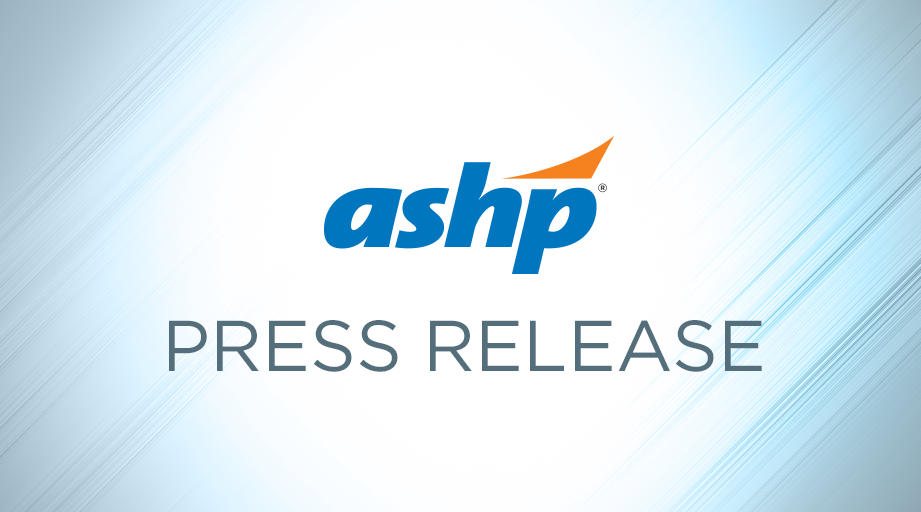

Denise Scarpelli
Pharmacists are ideally positioned to improve the specialty medication experience for patients and health systems, says Denise Scarpelli, vice president and chief pharmacy officer at the University of Chicago — and a featured speaker at the Sunday ASHP Summer Meetings session The Current State of Specialty Pharmacy: Focus on the Patient Journey.
Scarpelli spoke with ASHP in advance of the Summer Meetings to share her insights on the specialty pharmacy journey and why she’s excited to speak on the topic. What follows is an edited transcript of the conversation.
ASHP: What’s the first impression for patients whose care requires specialty medications?
Scarpelli: Most patients have no idea about the journey they’re about to embark on. A lot of times, patients are used to getting a prescription, paying a $5 or $20 copayment, and getting the drug that day. With specialty drugs, it’s complicated. There are prior authorizations and narrow pharmacy networks — meaning patients have to use a big-box specialty pharmacy, usually with mail order. So sometimes the journey can take up to two weeks to get that drug in hand.
Where does the specialty pharmacist fit into the patient journey?
We are the voice of the patient, and we will hand-hold that patient through the journey. We take care of the prior authorizations, finding access to that drug with a patient-assistance program to help with the copays. If it’s an injectable-type drug, the pharmacist does injection training for that patient and completes a side-effect profile. For some drugs, before they start, the patient’s labs and immunizations need to be completed. So the pharmacist will assess all this, order what is missing, and conduct the mandatory counseling.
What do patients worry about besides taking the specialty medication?
The medications have high copayments. With a specialty drug, copayment is usually $1,000-plus, depending on the health plan. Most patients don’t have $1,000 in their pocket. We call that financial toxicity. Because patients were just diagnosed with a horrible disease, and now they’re finding out that the cost of care is something that they cannot afford. Pharmacists have skills to help that patient through this and help them find a patient assistance programs and help the patients through the nervousness and anxiety.
How do your pharmacists coordinate coverage and access with payers?
If the health-system specialty pharmacy can fill it, we fill it and get the drug to the patient. We want to close the loop; we want to fill the prescription. However, out of 100 referrals, I may be able to fill maybe 30 to 40%, because the payers create narrow pharmacy networks. If our specialty pharmacy is not in the network, we will do all the up-front work with the prior authorization and copay assistance program and hand it all over to the network specialty pharmacy and have them complete the fulfillment and ship the medication to the patient. If prior authorization is denied, we will complete the peer-to-peer appeal. We call the insurance company, clinical pharmacist to clinical pharmacist, to argue the point that the patient does qualify to be on this drug. It’s sometimes a fight to try to get the drug covered and in that patient’s hands. At the end of the day, we just want to treat the patient.
What gets in the way of helping patients navigate specialty pharmacy services?
The payers, the manufacturers, I would say those are the key hurdles. The payers having very narrow, restrictive networks, the manufacturers having very narrow, limited distribution channels. There are other challenges, like restrictions to the 340B program that make it important for hospitals to build out a specialty pharmacy service. Payer restrictions, new specialty drugs, finances in healthcare in general.
What are your hopes for the Summer Meetings session?
We’re hoping for audience discussion about today’s challenges and how to solve some of these challenges. How do we work as a group of health systems to get ahead of payers and manufacturers and government restrictions so our patients get access to the drugs they need? And how do we continue to offer these types of services and programs? And, importantly, what are the future challenges for specialty pharmacy that we can work on today, so that we can help our patients have a successful journey?








